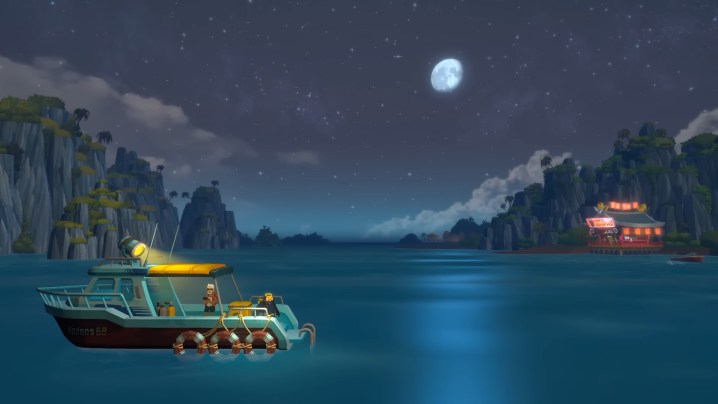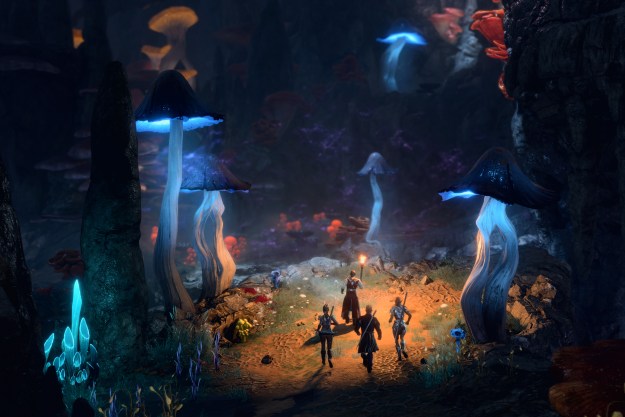“Indie” isn’t a new or unique term exclusive to gaming. Music and film in particular have had decades of independent productions that occasionally break through into mainstream success. Indie games have, of course, been around since the advent of the medium itself, but only really came to prominence to the wider public in the late 2000s and early 2010s when digital distribution started becoming a major player. Just like in music and film, indie games drew attention based on that label which implied to the audience that what they were looking at was the work of a small, passionate team not beholden to the same corporate mandates as traditional games. What they lacked in budget and scope, they made up for in heart and fresh ideas.
In 2023, that term is losing its meaning. Indie is quickly becoming a loose word used to describe a type of game rather than the actual environment in which it was made — something that’s fueling a controversy at this year’s Game Awards. With ‘indie’ being tossed around more loosely by players and gaming institutions alike, we’re starting to lose what made the word meaningful in the first place: it helped provide a spotlight for games made by passionate teams without the means or money to get mainstream attention.
Fishing for attention
This indie debate picked up a lot of attention this week due to the recently released nominations for The Game Awards. Specifically, debates arose after Dave the Diver was nominated for Best Indie. Dave the Diver was developed by Mintrocket, which is owned entirely by Nexon, a multibillion-dollar South Korean publisher. That’s hardly what one thinks of when they hear the term “indie,” but it was an easy mistake to make on its surface. The creative, small-scale game features a pixel art style that’s usually reserved for indies these days and is an experimental genre mash-up we expect from games like Slay the Spire.

However good Dave the Diver is — and it is a great game — that doesn’t change the fact that it isn’t accurate to call it an indie. There is no definition of the term that applies to it unless we’re just using the word to describe a certain aesthetic. Going simply on vibes is inaccurate in its own right, as Baldur’s Gate 3 is technically an indie project despite being a massive 100-hour RPG that’s as polished as any major studio-backed production.
Some may argue that this is a pedantic debate. After all, Dave the Diver isn’t a Zelda-sized project and it wouldn’t have a shot at competing at The Game Awards outside of indie categories. But the misuse of the label can hurt games that actually do rely on that indie spotlight. When a game that is categorically not an indie gets a nomination like this, that’s one less opportunity for a truly independent project to get mainstream attention.
It’s not just a problem specific to the Game Awards. The misuse of the label can box small studios out of important discovery moments. Being shown off at a Nintendo Direct, ID@Xbox, or PlayStation showcase can provide important exposure that a small team could never dream of capturing on its own. Teams owned by huge publishers with marketing money to burn shouldn’t be taking that spotlight away from those who need it.
How we label genres and categorize games as a whole can be arbitrary (debates like “roguelike vs. roguelite” will make your head spin), but the indie label serves a specific purpose. Used right, it allows for unique titles to break out to the masses in a highly competitive market that favors big studio productions. When the industry starts throwing the term around and any game can be considered independent so long as it has pixel art, that value gets sucked away. It’s not a purist plea to use language the way it was intended, but a genuine concern for the health of the gaming industry. The more we misuse the word indie, the more harm it may cause the very developers whose one chance to find success often depends on the word.
Editors' Recommendations
- 2023 set an incredibly high bar for video game sequels
- Zelda: Tears of the Kingdom isn’t our Game of the Year, but it’s the strongest No. 2 ever
- The 10 best video games of 2023
- How a MacBook Pro sneakily got me back into PC gaming
- The Game Awards 2023: how to watch and what to expect




